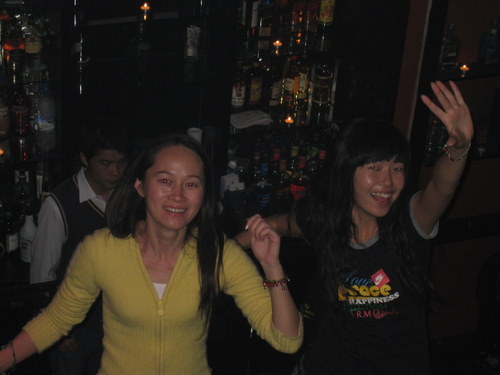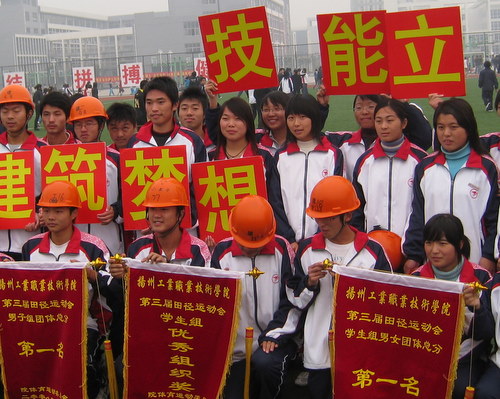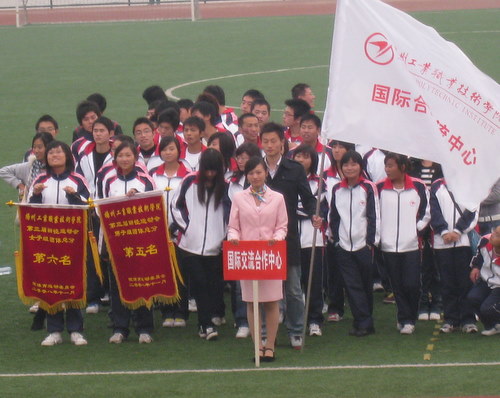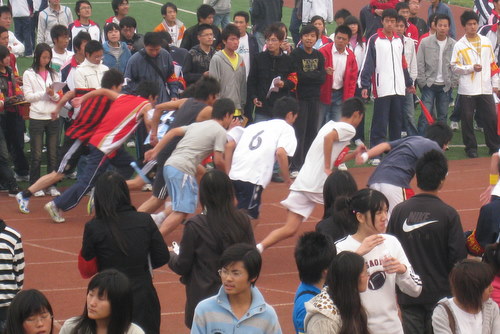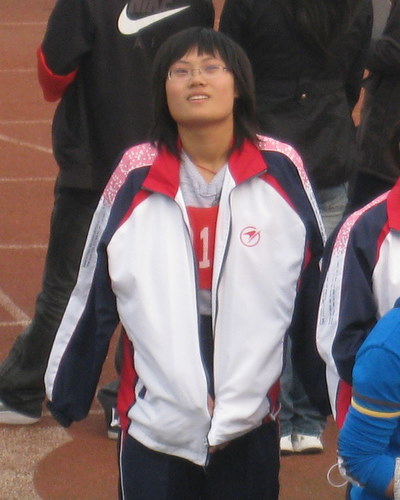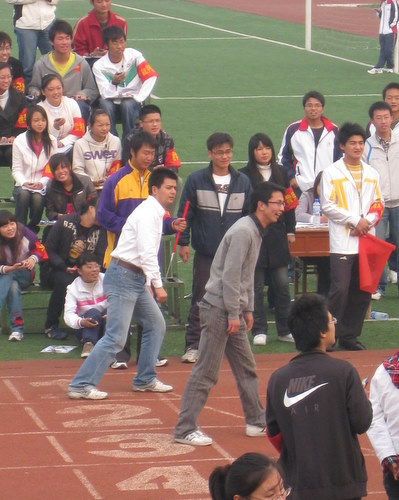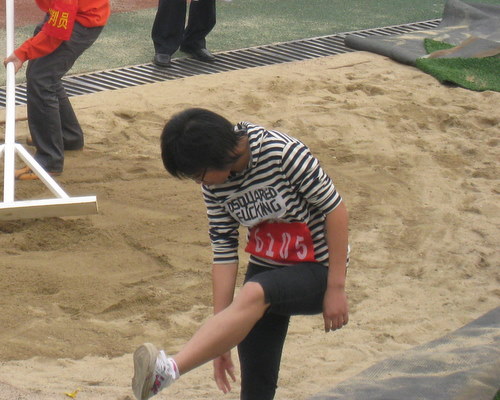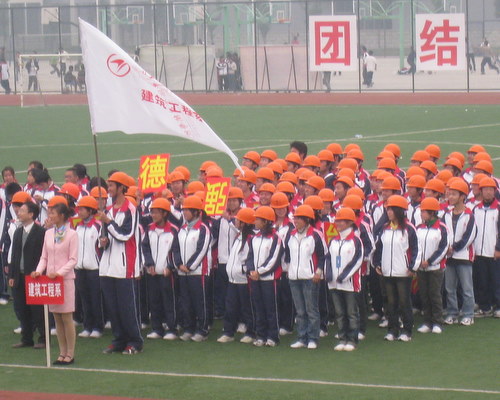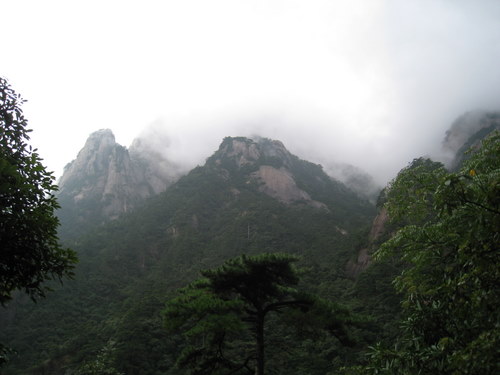
HUANGSHAN – I’ve had some time off while my students practice their marching and chanting on the school’s football field during mandatory pre-college military training, so I decided to head to Anhui Province for a few days and climb a mountain.
I hopped on the overnight train in Nanjing, where my inability to speak Mandarin landed me in a hard-sleeper cabin instead of the soft-sleeper I enjoyed on the way to Beijing (learn how to say “soft-sleeper” in Mandarin, kids, it’s just a few kuai extra and you’ll actually get some sleep).
However many hours and almost no sleep later, it was 5:30 a.m. and I had reached a town called Tunxi. Fifty kuai got me to a much smaller town called Tankou, and forty more convinced the driver to take me from the hotel and restaurant he dropped us all off at, to the Bank of China in what some might call the center of town.
I had no real interest in visiting the Bank of China at 6:30 in the morning, especially after hearing that it didn’t open until 8:00, but Lonely Planet told me there was a place across the road called Mr. Hu’s Restaurant and that the owner, Mr. Hu, speaks English and is a good source of information.
Mr. Hu’s Restaurant, of course, was not across from the Bank of China, or at least not the Bank of China that I was driven to. But after just a few minutes of aimless wandering in the adorably small downtown business area of Tankou, a woman approached me speaking very good English and offering coffee and breakfast and hotel information.
She led me to a small restaurant with a sign above the door that read, “English service. Free Information.” An overpriced bowl of noodles and some pretty decent coffee later, she emerged from the kitchen with a map and an armload of Huangshan area travel guides. And in no time, I had a hotel reservation at 100 RMB/night and a route planned out for the next day’s climb.
(I would meet Mr. Hu the next day, actually, when he drove me to the bus station in Tankou, after first showing me the actual location of his restaurant and promising to give me information about the area if I decided to eat there).
Huangshan, or Yellow Mountain for those of you who speak even less Mandarin than I do, is a very touristy mountain to climb. There are paved stairs all the way to the top, and you can hike for hours at the top without ever reaching a trail that isn’t paved. There’s even a cable car to take you up there if you aren’t into climbing stairs for three and a half hours.
But China’s tallest staircase is still a hell of a walk. Especially if you’re carrying a load of food up to the hotels at the summit, like these guys were.
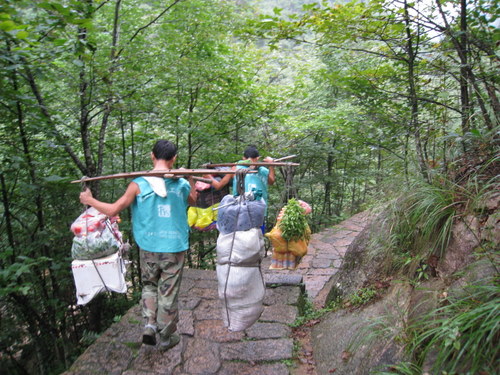
I passed dozens of these guys on the way up, and couldn’t help wondering why they couldn’t use the cable car to carry all that stuff to the summit.
Either way, the mountain was incredibly beautiful. I, of course, picked a day that was both rainy and remarkably foggy, which led to that wonderful moment when you get to the peak after three hours of climbing in the rain and see… fog. Lots and lots of fog. You can clearly tell that what you are looking at would be unspeakably beautiful on a clearer day. But all you see is fog. So you take a picture of it.
I took plenty of pictures, and some of them even came out. Here’s a few of the better ones:
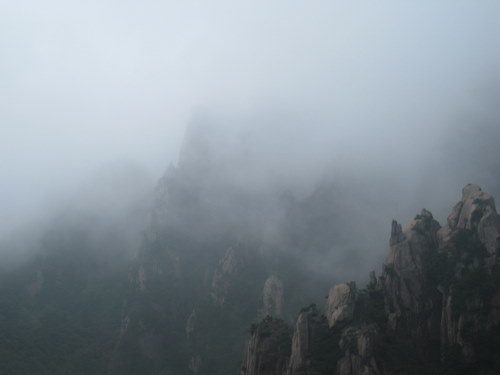
You can almost tell there’s a mountain there, behind the fog.

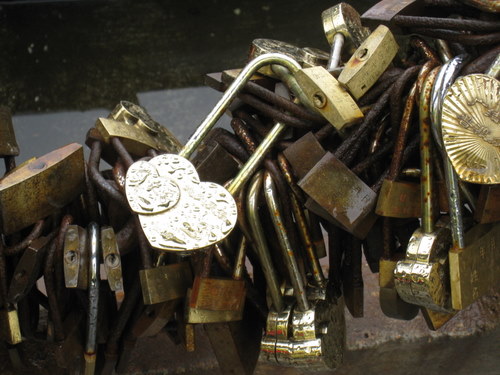
At the top of the mountain, and at many points on the way up, couples have chained padlocks along the guardrails. The army of padlocks is evidence of just how many Chinese couples have made this climb.
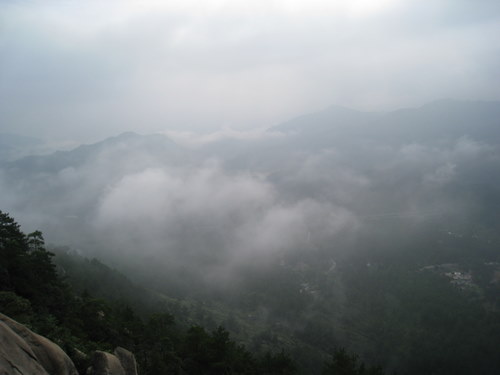
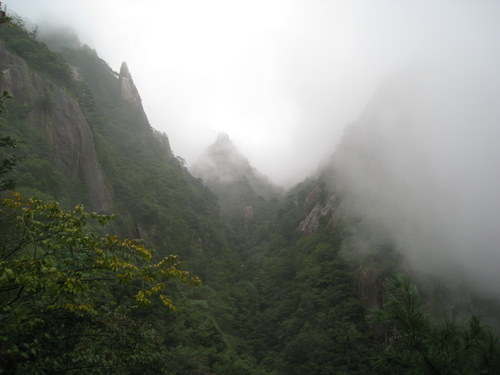
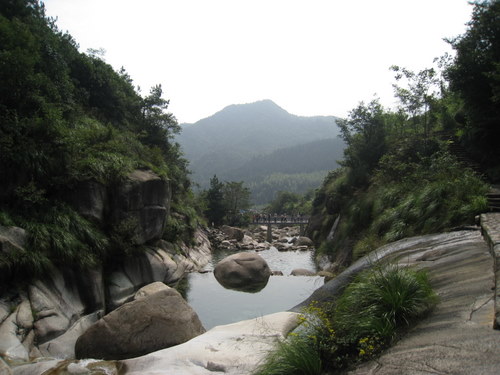
The valley at the base of the mountain is also worth a visit.

So is the waterfall, even if it was more like a very large and impressive trickle during my early-Autumn visit.
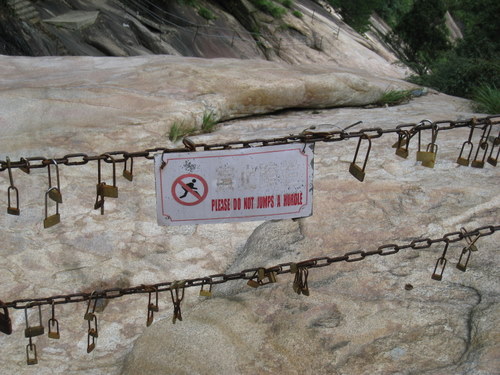
There are some really great signs in the Huangshan area. During one stretch of the hike, there were repeated warnings of “Wet Floor.” A sign at the waterfall explains that a famous movie called “lie the tiger to hide the dragon” was filmed there (you might know it better as Crouching Tiger, Hidden Dragon). Another sign, asking tourists not to walk down a certain stretch of path, reads, “Visitor Halt.”
But this one (above) is my favorite. Hanging from a metal chain that clearly marks off a certain area that tourists are not meant to cross, the sign asks visitors not to jump over that chain. Complete with a picture of a stick figure doing his best Liu Xiang impression, the sign reads, “Please do not jumps a hurdle.”
